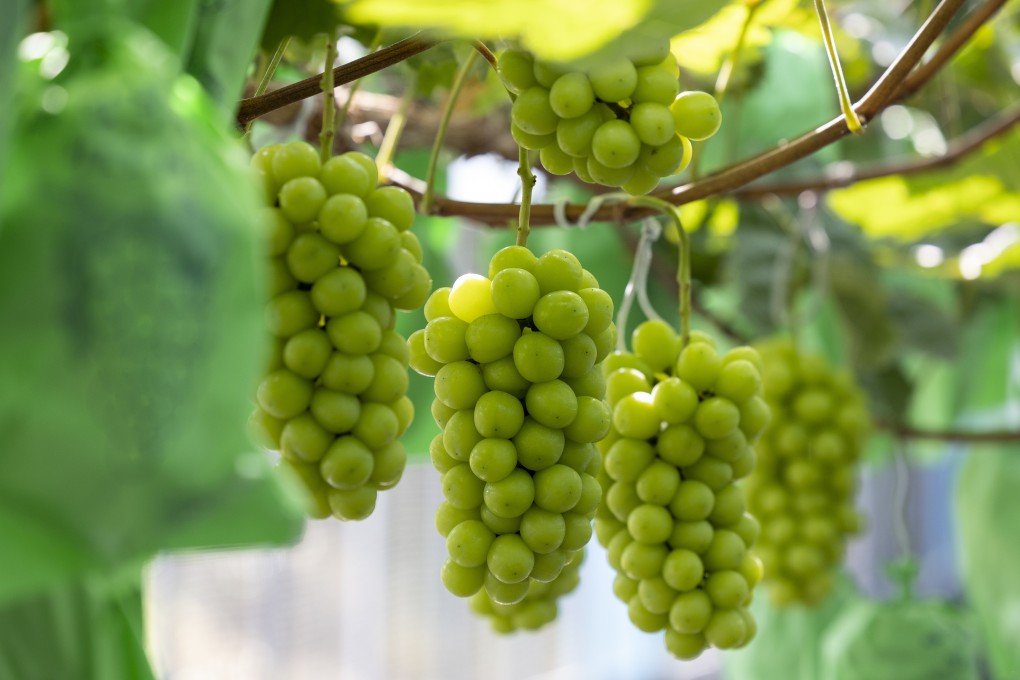Which country produces the best Shine Muscat grapes – China, Japan or South Korea – and why are they so popular in Hong Kong?
- Japan’s Muscat Shine grape is an expensive variety that is very popular in Hong Kong, but cheaper versions from Korea and Chinese are gaining ground
- Hong Kong has become a Shine Muscat grape battlefield, with producers from Japan, South Korea and China each laying claim to grow the best

The Shine Muscat grape – developed in Japan – is popular in Hong Kong. Despite its high price, the fruit is eaten for special occasions or given as a sign of respect.
Hongkongers’ fascination with Japan and its produce helped it dominate the market for this fruit. But with an increasing number of producers from South Korea and China offering high-quality grapes at a better price, the Shine Muscat market is changing.
For Fiona Mok, 29, an office worker in Hong Kong, eating Shine Muscat grapes was once reserved for special occasions – bringing them as gifts when visiting a friend’s house for a meal – but now she enjoys them as everyday fruit.
“My boyfriend bought me a bunch of Japanese Shine Muscat worth about HK$400 (US$51) as a gift. But for me, they tasted similar to Chinese ones,” she said. If it was up to her she would choose the cheaper grape, she added.

For price-sensitive Hongkongers, the Shine Muscat’s high price – Japanese grapes can cost anywhere between HK$100 and HK$500 a bunch, while Korean varieties can go for up to HK$300 – has been a hurdle. But the cheaper Chinese Shine Muscat, which costs HK$50 to HK$100 a bunch, is more affordable.